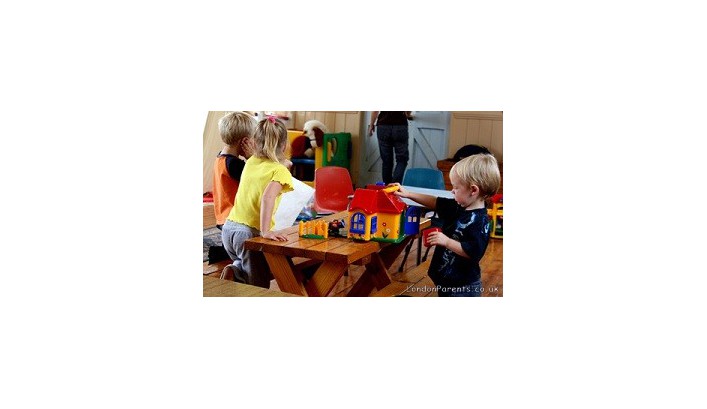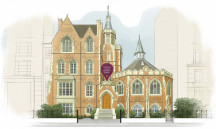Article Categories
News
-
20 July
-
04 November
-
10 July
-
12 June
-
05 June
-
24 September
-
19 September
-
10 May
-
26 April
Website Categories
Preschools: About playgroups and preschool groups
 When it comes to thinking about preschool childcare for your toddler or child it can be quite confusing. Playgroups, preschools, nurseries - it is hard to know what the difference is between them and which is best for your child.
When it comes to thinking about preschool childcare for your toddler or child it can be quite confusing. Playgroups, preschools, nurseries - it is hard to know what the difference is between them and which is best for your child. Preschools generally fall into two categories, preschool playgroups and nursery schools. Preschool playgroups accept children aged between two and five, and are short sessions where children stay and play with other children their age.
Nursery classes and schools (not to be confused with day nurseries) take children aged 3 and 4 years old, usually for the year before they start the first school year. They are sometimes attached to a primary school. Both types intend to provide a grounding for the child to start school, offering a range of structured educational experiences based on learning through play
- Your area preschool playgroups and nursery classes
- More about preschool playgroups
- More about Nursery schools and classes
- Preschool hours and costs
- Free early education
- There may be some regional differences; for example in Scotland parents can choose to send their child to a 'Partnership Playgroup'
Playgroups
Children are usually able to start a preschool playgroup between the ages of two and three (depending on the group) and can keep attending until they start school or they leave to start Nursery School for at least a term or two before starting "big" school. Most preschool playgroups offer short sessions (often mornings) to help 'ease' your child out of the home and into a more sociable childcare setting and learning environment for toddlers where they can play, learn and have fun with other children of a similar age, introducing them to the ways of education without their parent present.
Preschool playgroups will also help your child build confidence, social and cognitive skills, and provide a good transitional base between home and 'big' school. Each group will have a varied mix of toys, games, singing, story-time, reading, painting, playdough, art and craft activities, with a free play or outdoor area for children to run around in.
Nursery schools & school nurseries
Nursery schools (not to be confused with day nurseries) are often more formal in the way they structure the sessions and are sometimes attached to a primary school. They are able to take children from 3 years (if there are places available), and intend to provide an introduction to primary education and a grounding for the child to start school. Some have different intake periods depending on your child's age and how many sessions they will be attending for. Many parents use a school nursery as a stepping stone from preschool playgroup to school, or from home to school.
It is not essential for a child to attend a nursery and it will depend on whether you wish your child to attend and when or where there is a place available for them. You may be happy to keep him at a playgroup or private daycare until he starts reception, or you may feel (especially for older children with October - December birthdays) that a nursery school will provide a good opportunity for him to mix with other children of a similar age and increase his independence before he starts 'big school'.
In some areas of the country there may be a shortage of nursery places so it's important to bear in mind that your child will not automatically be offered a place at the nursery you have applied for, especially if it is oversubscribed. If this is the case, you may be given details of alternative vacancies to consider. It's best to start thinking about pre-school nursery a good few months before your child is due to start so you can make contact, organise visits and complete all of the relevant applications.
Preschool hours and costs
Fees for preschool vary hugely across the UK and are dependent on the type of group, your child's age and the number of hours they attend. Typical costs for playgroups are between £5 and £10 for a 2-3 hour session and some groups may offer extended care at an additional cost. You might be asked to contribute fruit or a few pounds each week to help buy the children's provisions (including art materials and snacks). State-led nurseries are sometimes poorly funded which means they need to rely quite heavily on fund-raising events and parental donations to pay for resources. If your child is attending for a morning or afternoon session, you might simply be asked to donate a weekly portion of fruit for the children and perhaps a pound or two to put towards new books, toys or activities.
Children attending for a full or extended day will be given lunch/dinner and snacks so you will need to pay a fee for that. But all nurseries' costs vary so it's worth investigating this fully before you apply and accept a place. Most nursery schools operate morning or afternoon sessions (typically 9am-12.30pm or 12.30pm-3pm) but many also offer full day sessions (9am-3pm) or extended hours (all day) which can be a godsend for working parents. In oversubscribed or particularly popular nurseries, these extra hours can be like gold dust so it's essential to gather information and decide which hours you might need early on so you can increase your chances of getting the right place.
For information about average childcare costs, visit Daycare Trust's website. For information about paying for childcare, visit Daycare Trust’s parent website: www.payingforchildcare.org.uk.
Free early education
Do remember that all three and four year olds in England are entitled to 15 hours of free early learning for 38 weeks of the year. This applies until they reach compulsory school age (the term following their fifth birthday). The early education can take place in nurseries, playgroups, preschools or at their childminders. Free early education is now delivered flexibly over a minimum of three days. To find out what your child is eligible for, visit the preschool learning page at the DirectGov website.
All 3 and 4-year-olds are entitled to 570 hours per year of free early education starting from the term after their third birthday- January, April or September. This is usually offered as 15 hours per week during terms time (38 weeks of the year.) However, to allow the entitlement to be used more flexibly, some childcare providers in some areas are able to stretch the 570 hours over more weeks of the year. For example, you may be able to use around 12.5 hours per week for 40 weeks of the year or just under 11 hours per week for 52 weeks of the year. Ask your preschool or your FIS if this is an option you have.
It's also useful to note that the government is currently working on writing new guidance about the free places, which will come into force in September 2012. This guidance will allow for more flexibility. For example, from September 2012, you should be able to use the full 15 hours over as few as 2 days per week. Currently, it is usually only available 3 days per week for 5 hours per day, or 5 days per week for 3 hours per day.
Source: http://www.netmums.com/your-child/choosing-toddler-groups-and-preschools/preschools-about-playgroups-and-preschool-groups
Related articles
- Odyssey will open its first UK campus in Marylebone, London, April 2025 - - The award-winning global preschool for children 0-5 ...
Read moreEPIC GLOBAL PRESCHOOL, ODYSSEY, COMING T...
Londonnews554XXXAn award-winning preschool offering from Asia is to open its first campus in London, bringing a new global ‘limitless learning’...
Read moreParenting is no easy task, and for Jordan and Briana Driskell, raising their quintuplets—Zoey, Dakota, Hollyn, Asher, and Gavin&mdash...
Read more0 comments
No messages yet




